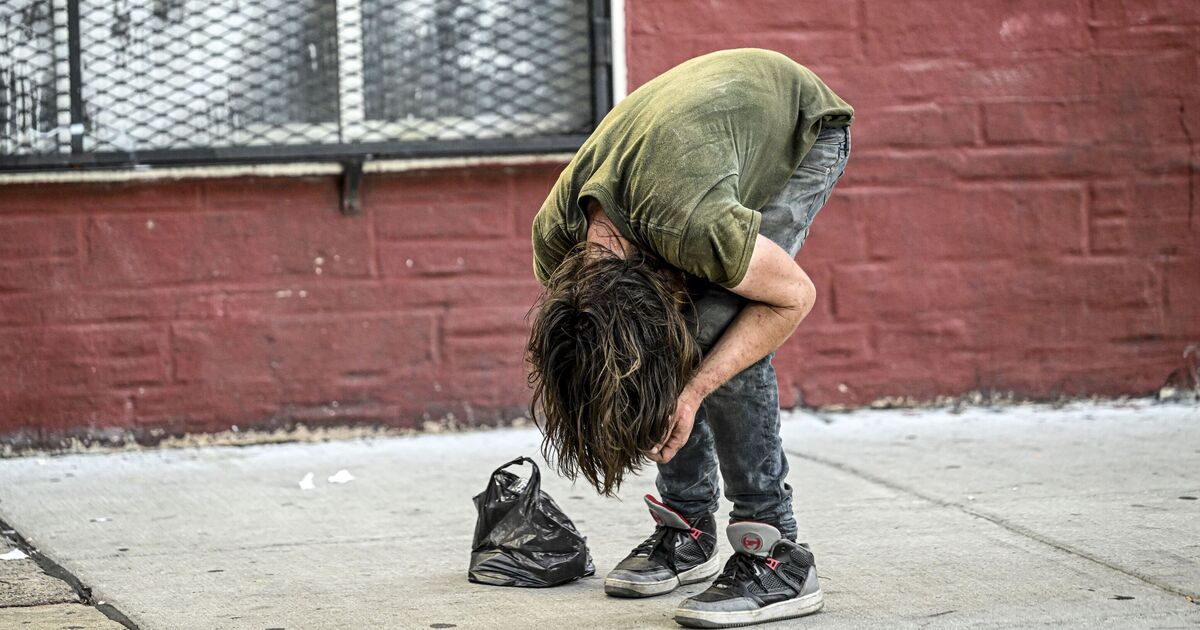America’s “zombie” drug nightmare is heading for the UK unless the Government takes urgent action, a leading think tank has warned.
A new generation of hard drugs is ravaging communities in the United States and the Centre for Social Justice is concerned this crisis is in “danger of washing up on our shores”.
Andy Cook, the chief executive of the CSJ, said: “Unless the government wakes up fast, these new synthetic drugs like tranq risk turning parts of Britain into a zombie nation.”
In April, the White House designated the street drug tranq – which combines the animal tranquiliser xylazine and the opioid fentanyl – as “an emerging threat to the United States”.
Tranq is known as a “zombie” drug because of the debilitating impact on users, who can also suffer flesh-eating sores on their skin. Experts from King’s College, London this year warned the “public health threat has now expanded to the United Kingdom”.
CSJ researcher Alexandra Galvin witnessed the horrors inflicted by the drug in Philadelphia’s Kensington neighbourhood and is calling for urgent preventative action in the UK.
She said: “Hundreds of people lie sprawling in the street, their bodies marked with wounds that refuse to heal. The air reeks of rotting flesh in the hot Pennsylvania sun.”
Ms Galvin warns that this “desperate corner of America is a warning to us Brits of the devastating impact of drug addiction and the ever-evolving drug market”.
A top concern is that drugs are getting “stronger and more deadly” as a result of the rise of “synthetic opioids”.
She said: “Deaths from drug poisoning in England and Wales now stand at their highest recorded levels. Opiate deaths from new synthetic drugs are 12 times higher than last year.
“Although overall illegal drug use has declined, the number of those suffering the most serious harms, including death, has grown.”
This year the BBC reported that laboratory-manufactured drugs known as nitazenes – which are more dangerous than heroin – were being advertised on social media and smuggled into the UK in dog food and catering supplies.
Ms Galvin said: “Most people don’t realise that synthetic opioids are even more addictive and dangerous than natural opioids like heroin or morphine.”
She said that while 14 nitazenes were classified as Class A drugs earlier this summer, “regulation is always one step behind”.
“On average, nitazines have been linked to nearly three UK deaths a week,” she said.
Pressing for action, she added: “There is still time for the UK to get ahead of this problem, but we need to hear from the new Health and Home Secretaries, Wes Streeting and Yvette Cooper, on the Government’s plans to tackle the crisis. They urgently need to strengthen law enforcement, address the socio-economic factors that exacerbate addiction, and invest in comprehensive local treatment programmes.”
The CSJ warned in a landmark report in December that drug misuse “costs the Treasury an estimated £20billion per year”.
A Government spokeswoman said: “The new Government is deeply concerned about the threat of synthetic opioids and is determined to prevent these highly dangerous substances reaching our communities and to protect the vulnerable people most at risk.
“We will continue our engagement with partners across health, policing and wider public services to drive down drug misuse, and move forward with our mission to make streets safer.”
A cross-departmental taskforce has brought together officials from the Home Office, the Department of Health and Social Care, the National Crime Agency, the National Police Chiefs’ Council and Border Force.










